Analyzing Voice.com. Region locked? KYC? Onchain?
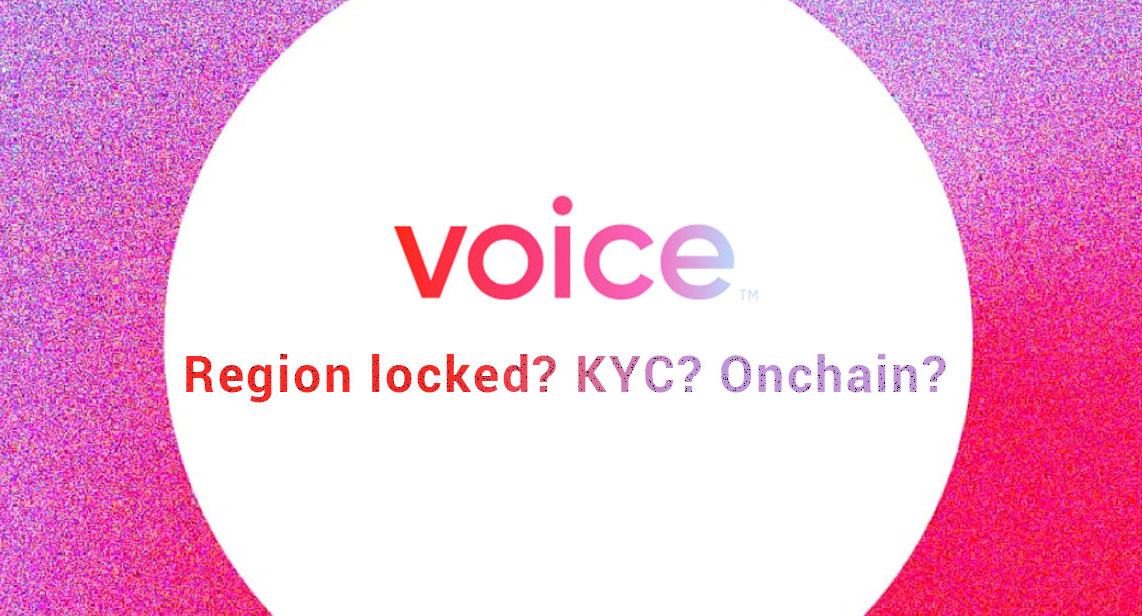
In the 29th of January, the Voice team released new information regarding the platform that is seemingly confirmed to launch on February 14th in its beta version.
- Article: Behind the scenes at Voice: Legal & Compliance
- Presentation: A Regulatory Recap
Part 1: Behind the scenes at Voice: Legal & Compliance
In these two new articles released, the team explains mostly how hard they’ve been working on achieving a regulatory compliance that was good enough to launch the product in the timeline given. From the article we understand a few things:
The volume of legal agreements will only increase as we launch in more countries and build additional functionality into the product. We’ve already looked closely at all our key markets across the Americas, Europe, Africa and Asia…. Working closely with our product team, our legal team has taken steps to limit functionality where needed, but to also futureproof the platform so that we can quickly grant access to new territories as they become available to us.
From this we understand that the full features of Voice will only be available in one country. Very likely the United States. We can only hope this will be extended to a few more countries at launch. They do also mention that a stripped down version of Voice should be available in other markets.
For Beta and in our future planning, we’ve gone to great lengths to ensure that the Voice token will be fully compliant with US securities law. In addition to engaging with the SEC, we have built policies and systems to comply with OFAC and AML requirements… As we add functionality and utility to Voice tokens post-Beta, we’re going to require licenses in most US states individually.
The Beta version of the software that will be released on the 14th of February is already compliant to all the US Security laws. However in post beta they will have to get licenses from each US state individually for every new feature. Good news is that the Voice legal team already has systems and deals in place to speed up the process. But will this be the same for all countries? Will they be able to be fully compliant with all the countries and regions they will release the software in? It seems like a grand goal. To this the Voice team says that they “have enlisted the support of some of the best minds and practitioners in the world, totaling over 100 legal professionals alone.” Only time will tell if this will be enough.
With verified identity for Voice users, we hope to require far less content moderation than other platforms.
With this phrase we have the confirmation that Voice will have an identity layer and that every user needs to be verified. This is actually great news as it will allow many other features blockchain-wide if the identity layer is opened to other DApps in some API.
Part 2: Presentation A regulatory Recap
This presentation was extensively analyzed by the EOS community. This was a part of the ppt that was used in the U.S. Securities and Exchange Commission in Washington D.C. while the team was discussing the plans and vision they have for Voice. The following are points that the Community member “Chaney Moore” also known as RiverKingfisher, analyzed.
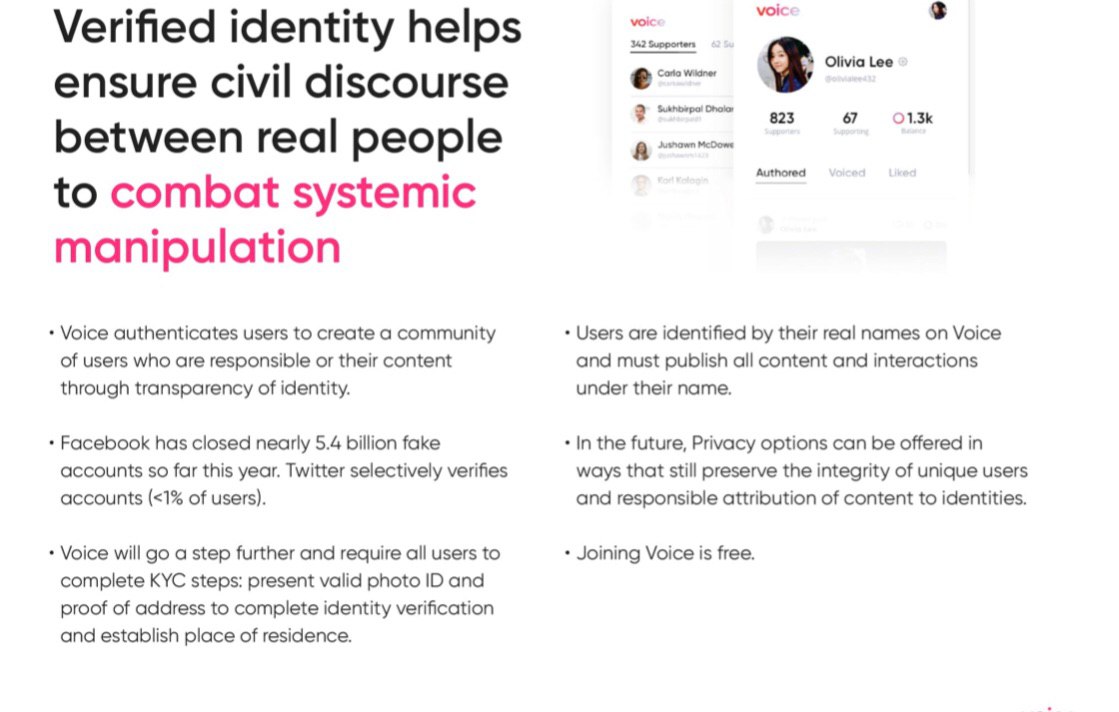
- KYC for Voice will involve ID photo and proof of residency in the country specified. There are however no mention of other KYC requirements yet.
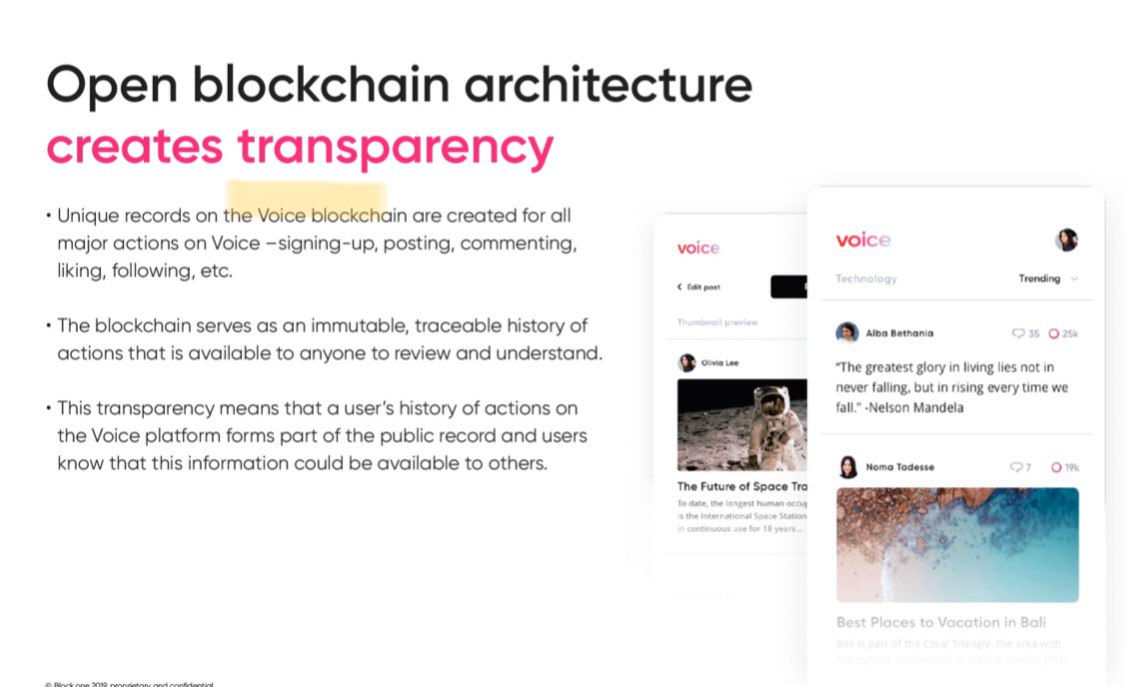
- The “Voice Blockchain” will host user records. Notice that it makes no mention of what that blockchain is AND makes no reference to the tokens being stored on the Voice blockchain. The speculation by the community member is that it will still remains with a private Voice chain which will perform all the tasks and hopefully tokens will reside on EOS.
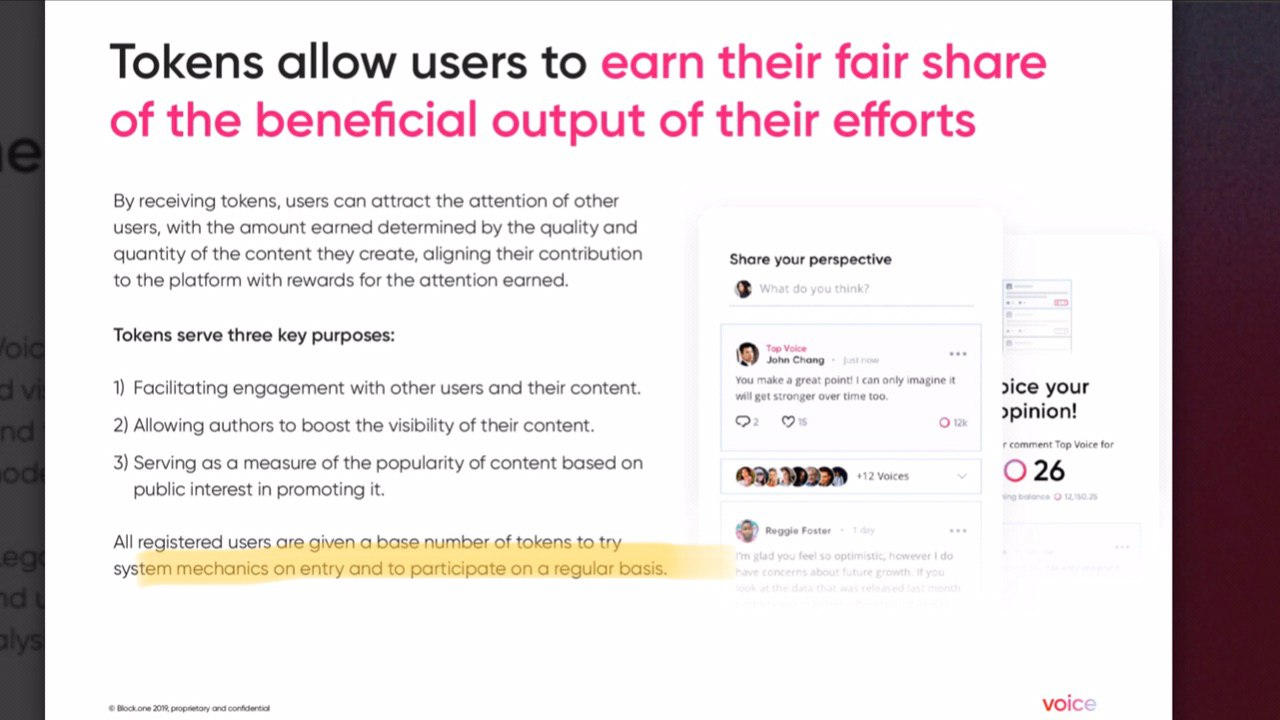
- This was the reason that was given to the US Security and Exchange commission for the use of the tokens, there is also the confirmation of a regular faucet to engage participants.
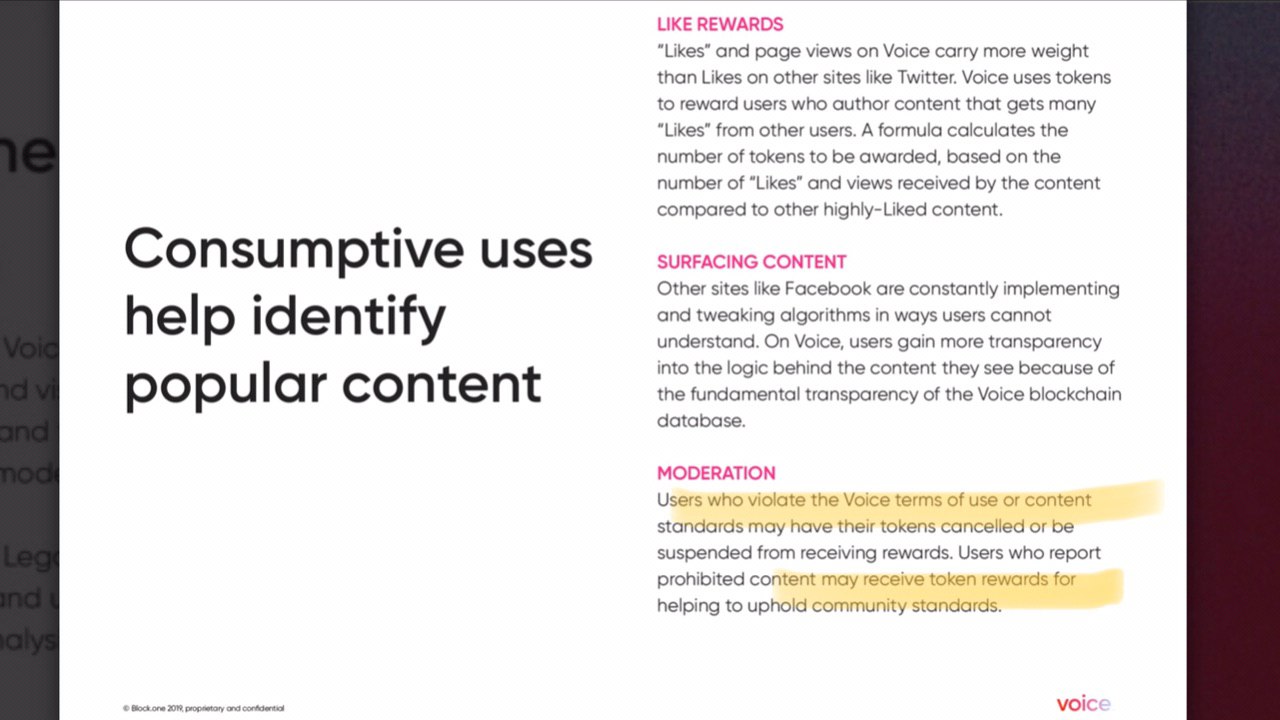
- B1 will have full control of the token contract. The community can help Voice to report on users that may be posting prohibited content in exchange of a reward. While users who break the terms of use of the platform may have their tokens cancelled or suspended.
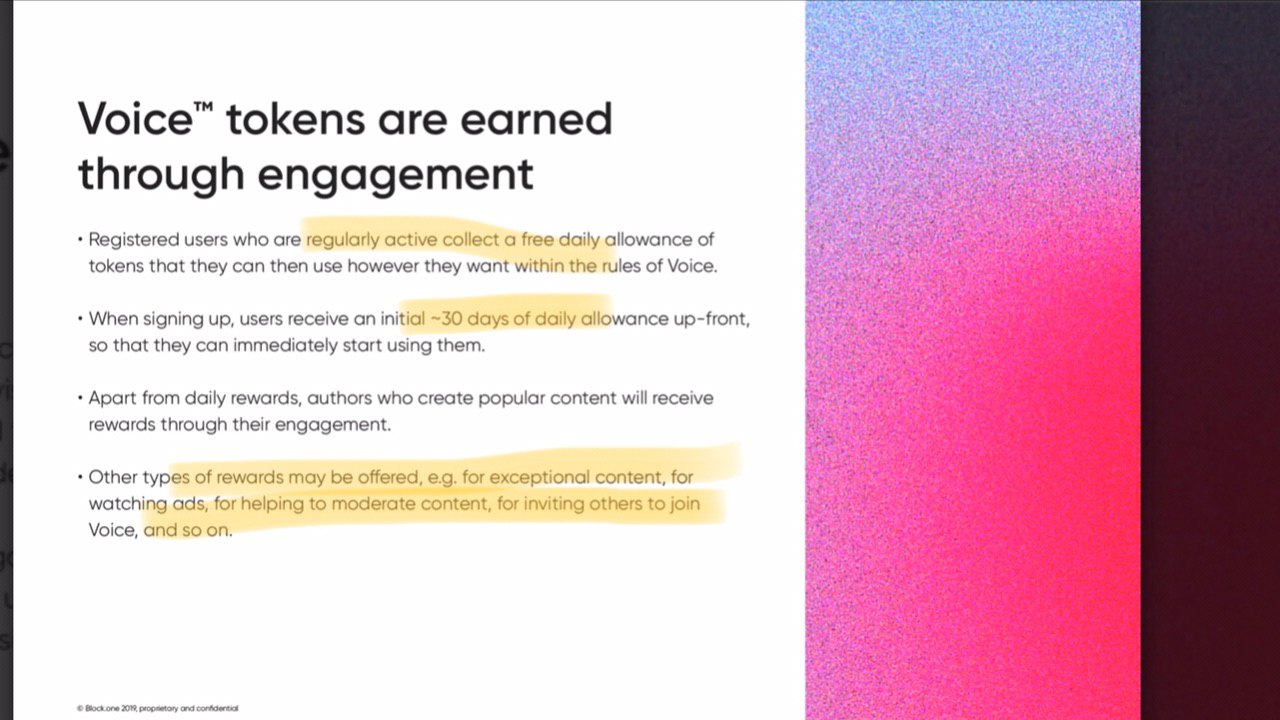
- Voice will offer a 30 days supply upfront during the registration period to get things moving and allowing them to interact with the platform. Active users will receive daily rewards and there may be extra rewards based on usage e.g. comments; watching ads; inviting to join Voice; comments moderation; etc.
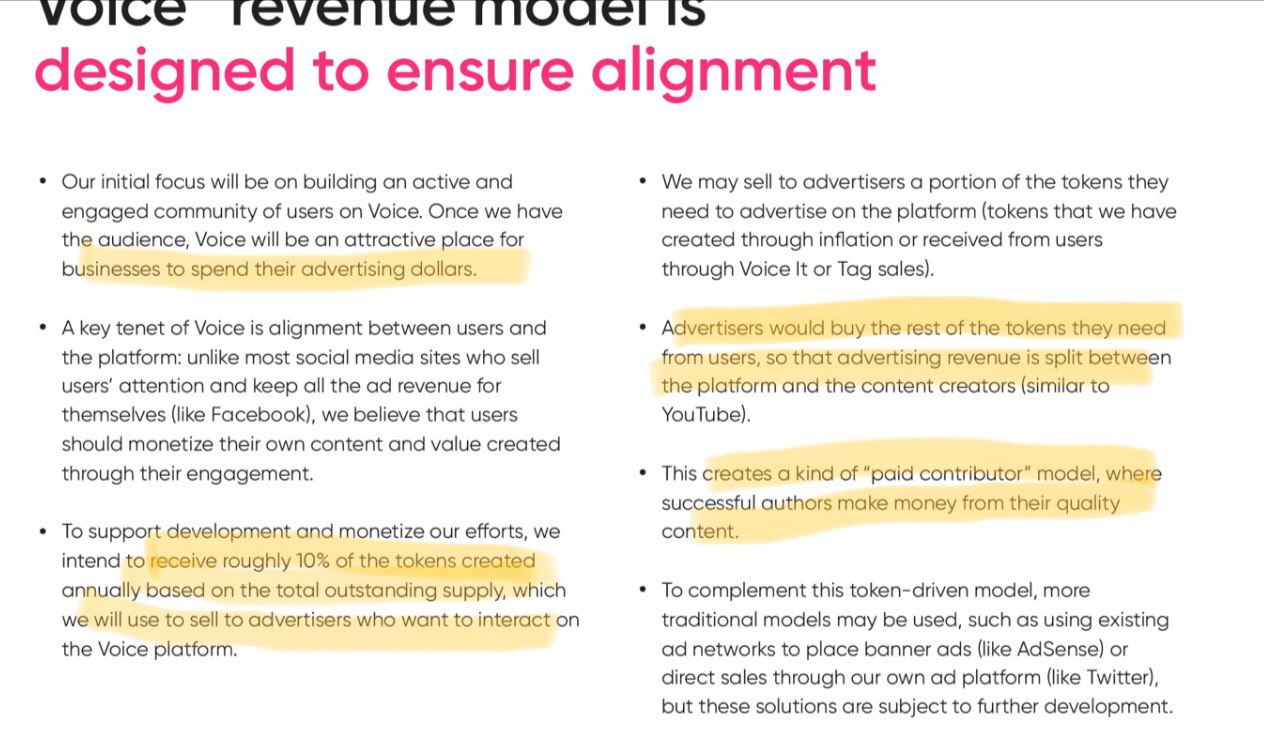
- Block.one will keep a 10% of the token annual supply. This will be used to sell the tokens to advertisers, furthermore, advertisers can buy more tokens from users and the revenue will be split between the platform and the content creators. Like with Youtube, successful content creators will be able to make more money out of their quality content. However this will be extended to all kinds of content.
CREATING CONTENT: Posting text, pictures, video and links, editing, deleting, collecting rewards.
- Interesting to see the list of content that can be posted to the platform. Which includes videos. However they mention deleting and editing content, while this is a nice feature to have, how much decentralized will the content be? If the user is allowed to edit and delete content this might mean that the actual content is not going to live onchain. There will probably be a link or content ID and operation made that will be retrievable onchain but not the actual content.
What are your thoughts on all this? Did you spot more details? Join the community and let us know: t.me/eosgo
EOS GO is funded by Polar.io and powered by YOU. Join the community and begin contributing to the movement by adding eos go to your name and joining the EOS GO telegram group.